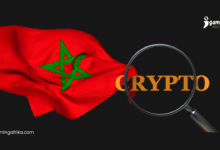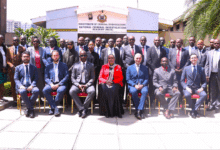Morocco Introduces Draft Law to Regulate Digital Assets

The Moroccan Ministry of Economy and Finance has unveiled Bill 42.25, a comprehensive proposal designed to establish a formal legal framework for digital assets and decentralized finance. The initiative marks a major turning point for Morocco, which has until now prohibited cryptocurrency transactions under its foreign exchange regulations despite growing local interest in digital assets.
According to the Ministry, the new law seeks to achieve four main goals:
- Protecting investors involved in digital asset activities.
- Upholding market integrity and preventing fraud, money laundering, and terrorist financing.
- Encouraging innovation across the digital and financial sectors.
- Maintaining overall financial stability.
The draft law has been prepared in collaboration with Bank Al-Maghrib and the Moroccan Capital Market Authority (AMMC). It also aligns with recommendations from international bodies such as the IMF, BIS, and FATF, ensuring compliance with global standards on crypto regulation and anti-money-laundering practices.
Defining and Classifying Digital Assets
Under the proposed framework, digital assets are defined as electronic representations of value or rights that can be transferred using blockchain or distributed ledger technologies. The regulation will cover activities such as issuance, trading, custody, and advisory services, providing legal clarity for operators and investors.
Read Also: Safaricom Reports Strong Half-Year Results with 52.1% Growth in Group Net Income
Two categories of tokens are specifically included:
- Utility tokens, which give holders access to a product or service.
- Asset-referenced tokens (stablecoins), whose value is tied to official currencies or other assets.
However, the law will not apply to central bank digital currencies (CBDCs), non-fungible tokens (NFTs), or cryptocurrency mining. Importantly, the proposal does not legalize crypto as a form of payment—digital assets will instead be treated as regulated financial instruments managed by licensed intermediaries.
Joint Oversight and Coordination
The bill introduces a shared supervisory system:
- The AMMC will oversee the issuance of tokens, licensing of crypto-asset service providers, and enforcement of rules against insider trading, price manipulation, and misinformation.
- Bank Al-Maghrib will monitor stablecoins to ensure they are fully backed by safe and liquid reserves, and that redemption mechanisms are transparent.
- The National Financial Intelligence Authority (ANRF) will be responsible for enforcing anti-money-laundering and counter-terrorism-financing obligations, including client identification, transaction record-keeping, and suspicious activity reporting.
Additionally, a national coordination committee bringing together Bank Al-Maghrib, AMMC, ACAPS (the insurance regulator), the Treasury, and the Data Protection Commission (CNDP) will ensure consistent policy implementation across sectors.
Crypto-related businesses will be required to obtain a license before operating. To qualify, they must demonstrate financial soundness, effective internal controls, and full compliance with AML/CFT regulations. Licensed providers must also disclose their fees, detail the risks of their products, and publish a white paper describing each digital asset’s structure and purpose. These measures aim to foster professionalism and transparency in a market that has largely developed informally and without oversight.
The proposed legislation introduces strong enforcement mechanisms, including administrative, financial, and criminal penalties for violations such as insider trading, market manipulation, and the spread of false information. Authorities will have the power to impose heavy fines, suspend licenses, or even pursue imprisonment in severe cases.
The Moroccan framework draws inspiration from the European Union’s Markets in Crypto-Assets (MiCA) regulation, which took effect in 2024. Like MiCA, it seeks to balance innovation with risk management—encouraging technological growth while safeguarding the financial system. Initially, only corporate entities will be allowed to operate within the regulated framework.
If enacted, Bill 42.25 will position Morocco as a regional leader in crypto regulation, providing a structured environment for digital innovation while maintaining strict control over monetary stability and consumer protection.
Source: Morocco World News























